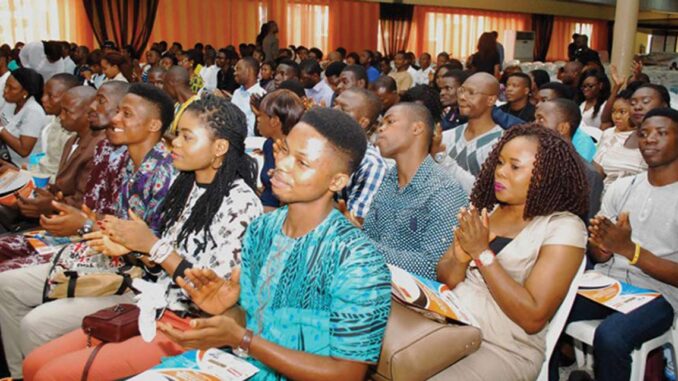
With about 70 per cent of Nigerians under the age of 30, it has become imperative for government and organisations to take advantage and redefine the perception and landscape of communication with their power of influence.
In this regard, the United Nations Educational, Scientific and Cultural Organisation (UNESCO) Abuja office recently organised a webinar on ‘Youth Power in Combating Mis- and Disinformation during the COVID-19 Pandemic and beyond’ to spur young people to use creativity and innovation to develop feasible schemes for promoting a literate society.
Since the outbreak of COVID-19 pandemic in the country, the media landscape has continued to witness uncertainty, which has become worsened with the proliferation of the social media usage. This has brought serious unprecedented communication challenges, creating fear and insecurity around the continent.
Recall that Mr. Mohamed O. Bangura, Minister of Youth Affairs of Sierra Leone, recently stated that in their response to the pandemic, African governments should explore the power of the youth who are full of technological and innovative ideas that could disrupt traditional thinking and modes of addressing the pandemic and other health emergencies. According to him, “young people are the engine and creativity of African future.”
In the same vein, the survey report, Perception of COVID-19 Communication in West Africa (non-Sahel) conducted by UNESCO within the year, also showed that young people are very active groups of the population on different media platforms. They are not only recipients of information, but their creativity can contribute immensely to the fight against mis-and disinformation on coronavirus.
The organisation had in May 2020 launched the campaign of Call for Jingles, designed to encourage young women and men to identify and leverage their creativity and innovation to combat mis- and disinformation on COVID-19.
One of the winners of the jingles said, “information is shifting the perception of COVID-19 itself, and only correcting the dis- and misinformation, creating reliable access to accurate information will develop a literate communication landscape for the public.”
The programmes and survey were designed under the framework of Media and Information Literacy. Dr. Carolyn Wilson, past Chair of Global Alliance for Partnerships on Media and Information (GAPMIL) from Canada, spoke on UNESCO’s interventions since 2011, launching international, regional, and national events on Media and Information Literacy (MIL).
“It recognises the primary role of information and media in everyday lives and includes contents focusing on critically evaluating the information.“More substantially, during the COVID-19 pandemic, MIL is gradually becoming a useful tool for channeling accurate and reliable information to the vast population,” she said.
Beatrice and Daniel, two youth ambassadors of GAPMIL (Brazil and Nigeria respectively), also discussed the relationship between youth bulge and establishment of a peaceful society and the establishment of youth alliance of media and information literacy. They further reiterated how the young people around the world could provide feasible and practical solutions in combating mis- and disinformation with their creativity and innovation.
To further expand the impact induced by the young people and as one of the key outcomes of the webinar, UNESCO Abuja Office is initiating a Youth Alliance of Media and Information Literacy to combat mis- and disinformation. So far, about 100 young people have expressed interest in joining the Alliance. The inauguration of the alliance is expected to take place in September 28, 2020. This will coincide with the International Day for Universal Access to Information.
The webinar was in partnership with StarTimes, AFARI Travels and Tours and Media Awareness and Information for All Network (MAIN) with the Ministers of Youths and Sports from Nigeria and Sierra Leone in attendance as well as over 300 other participants.
END

Be the first to comment